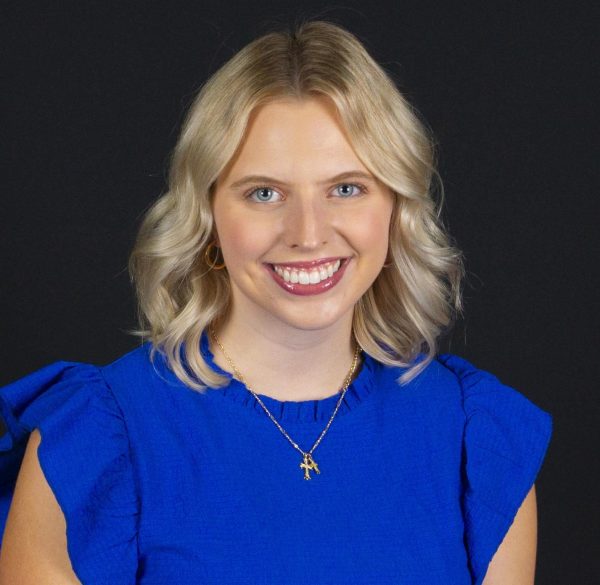Today’s weather forecast is predicting windy with on-and-off snow showers during the morning with a high of 30 degrees and a low of 17 degrees. We also are under a winter weather advisory out there until tomorrow so it’s a good chance to pull out your winter coat, gloves, and hat officially!
MSU president proposes fundraising for scholarships, ‘institutional restraint’ policy
Michigan State University President Kevin Guskiewicz shared new details about an upcoming fundraising push and campus speech guidelines in an interview on Tuesday.
He suggested that the university will solicit donations for scholarships and other student success initiatives. His administration will also soon announce a policy of “institutional restraint” governing official statements on political issues.
Focusing on the capital campaign which aims for students, Guskiewicz said the push was something he pitched extensively during his interviews for MSU’s presidency last year. His previous institution, the University of North Carolina Chapel Hill, finished a record-breaking campaign of its own during his final year as president.
The campaign will be centered around “student success initiatives,” he said, mentioning possible scholarships and other supportive programs aimed at ensuring students can afford their full experience at MSU. That will include investments in a new “first-gen center” and related programs aimed at supporting students who are the first in their families to pursue a college degree.
It could take a few years for some of the fundraising goals to be reached and for programs to begin in full, but Guskiewicz said the university is already raising money and rolling out smaller programs. One such project is the new Joseph R. and Sarah L. Williams Scholarship, which provides high-achieving students with four years of tuition, room, and board.
The campaign will also fund some new units and professorships, Guskiewicz said. The university has already raised a “significant amount” for the new MSU Ethics Institute. It will support the research of ethics in law, bioethics, social justice, leadership, and three other “thematic ethics area(s) to be determined,” according to its website.
Flashy new buildings and the associated naming rights are sometimes a large part of capital campaigns. Guskiewicz, however, indicated that MSU’s campaign could monetize naming rights without breaking new ground.
Moving onto the policy of ‘institutional restraint,’ Guskiewicz also told The State News that his administration will soon announce policy limiting statements from the university that weigh in on contentious issues.
He said he ultimately decided to adopt a stance of “institutional restraint,” which he said differs from the pure “neutrality” policies adopted at other institutions.
The guidance will allow faculty and staff to make personal statements about issues but will caution against anything that appears to represent the opinion of MSU or a unit of the university.
That will include department statements, he said, which are usually declarations voted on by faculty in a department and then posted to their website. MSU’s removal of such statements earlier this year prompted concerns from some faculty, who felt a policy against department statements would encroach on their academic freedom if the issues discussed related closely to their scholarship.
Guskiewicz said he also consulted “Faculty Senate leaders” on the policy, who he says approved. He plans to consult the undergraduate student government as well.
Social media exposure among college students impacts mental health
For college students today, social media is as integral to their lives as textbooks and late-night study sessions. Platforms like Instagram, TikTok, and X, formerly known as Twitter, provide instant connection, community, and an outlet for self-expression.
Beneath the filters and viral dance trends, social media presents unique mental health challenges, especially for students navigating the high-pressure environment of academia. Constant exposure and overuse can alter self-image and self-perception.
In an era of curated feeds and filtered snapshots, it’s easy for students to fall into the trap of comparison. Research from UC Davis Health (UCDH) highlights a strong link between social media use and self-esteem issues. The article explains how constant exposure to filtered and altered images can lead individuals to dislike their own appearance.
With constant notifications and endless feeds, the effects on mental health can be severe. UCDH reports that excessive social media use is linked to higher rates of anxiety, depression, and loneliness among young adults.
Although social media can be a platform for academic networking and support, it can also be a significant distraction. UCDH’s article highlights the effects of “FOMO” (Fear Of Missing Out), which can drive students to check social media continuously, often feeling left out.
Constant social media use can lead to dependency, especially within the confines of a college campus. This dependency may contribute to heightened social anxiety, causing students to avoid in-person interactions. Resulting in impaired social skills, decreased confidence in social settings, and, in some cases, lead to feelings of isolation.
Continuous social media use, especially when driven by FOMO, can greatly disrupt sleep and negatively impact mental health. The Sleep Foundation says that individuals with FOMO tend to check their social media before bed and even wake up in the night to do so. This habit not only interrupts sleep but also exposes them to blue light, which interferes with melatonin production, a hormone essential for regulating sleep. Difficulty falling and staying asleep can lead to sleep deprivation, which is closely linked to increased anxiety, depression, and other mental health challenges.
As the academic year unfolds, college students across the country will continue to scroll, like, and post. But by approaching social media with caution and intention, they may find a healthier way to navigate the digital world — one post at a time.
Based on original reporting by Alex Walters and Jessica Pruitt.












